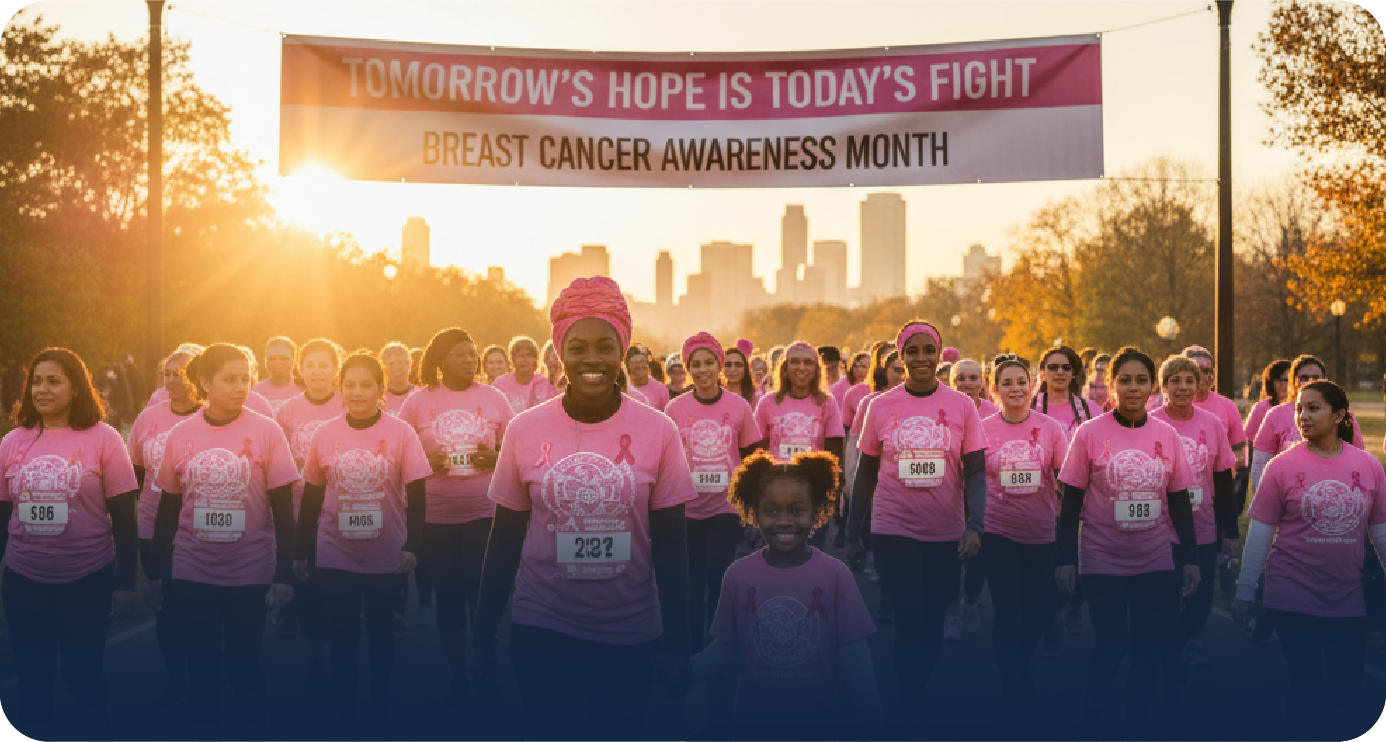Tomorrow’s Hope Is Today’s Fight: Breast Cancer Awareness Month
October 4, 2025
Written by Zack Schaffer
Join us in recognizing Breast Cancer Awareness Month as we highlight the importance of early detection, screening guidelines, and the power of community support in the fight against breast cancer.

October arrives every year with a wave of pink. Ribbons, walks, and campaigns fill our communities, but Breast Cancer AwarenessMonth is about far more than symbols. It’s about the women and families who carry the weight of this disease, the survivors who remindus of its challenges and its victories, and the relentless progress that pushes us closer to a future where breast cancer is no longer athreat. At our hospitals, this mission is woven into everything we do. From early detection to advanced treatment to compassionate support, we stand with women and their loved ones every step of the way.
Why Breast Cancer Awareness Month Matters
Breast cancer remains the most commonly diagnosed cancer among women in the United States. In 2025, nearly 317,000 women will be told they have invasive breast cancer, while more than 59,000 will face non-invasive diagnoses. Tragically, around 42,000 women will lose their lives to the disease this year. These aren’t just numbers. They represent mothers, sisters, daughters, and friends whose lives and families are forever changed.
Yet there is reason for hope. Survival rates have improved steadily, thanks to awareness, research, and advancements in treatment. More women are living beyond their diagnosis, building futures once thought impossible. Breast Cancer Awareness Month serves as a reminder that progress is real, but the fight is not finished. Each story, each shared moment of support, and each decision to get screened carries us closer to tomorrow’s hope.

The Power of Screening & Mammograms
Mammograms are one of the most powerful tools in this fight. Current guidelines recommend that women ages 40 to 74 receive a mammogram every two years. Beginning earlier than in the past allows cancers to be caught when they are small and highly treatable. Technology has also transformed this process. Today’s mammograms are clearer, faster, and more accurate than ever before. Advances in imaging and artificial intelligence have given doctors sharper tools to find cancer earlier while reducing unnecessary scares. A simple screening, often taking just minutes, has the power to change the entire course of a woman’s life. If you have been putting off a mammogram, let this month be your reminder. Early detection saves lives, and the peace of mind it brings is invaluable.
What Women Can Do
While no lifestyle can guarantee prevention, women can take meaningful steps to lower risk and stay alert. Knowing your body is essential — noticing changes and speaking up when something feels different can make a world of difference. Following recommended screening schedules creates another layer of protection. Understanding family history and seeking genetic counseling when needed provides additional clarity.
Healthy living also plays a role. Staying active, maintaining a balanced diet, limiting alcohol, and avoiding tobacco all contribute to lowering risk. These choices not only support breast health but strengthen overall well-being.
What Loved Ones Can Do
No one should face breast cancer alone, and loved ones often become the anchor in stormy seas. Support is about more than driving to appointments or cooking meals. It’s about presence — listening without judgment, offering encouragement, and standing beside someone during both their hardest and brightest days. The comfort of knowing you are not fighting in isolation can be as powerful as any treatment.
After Diagnosis: You Are Not Alone
A diagnosis may bring fear, uncertainty, and questions that feel overwhelming. But it also brings connection. Today, more than 4 million women in the United States are living with a history of breast cancer. That means there is an entire community waiting to provide strength, share experiences, and offer hope.